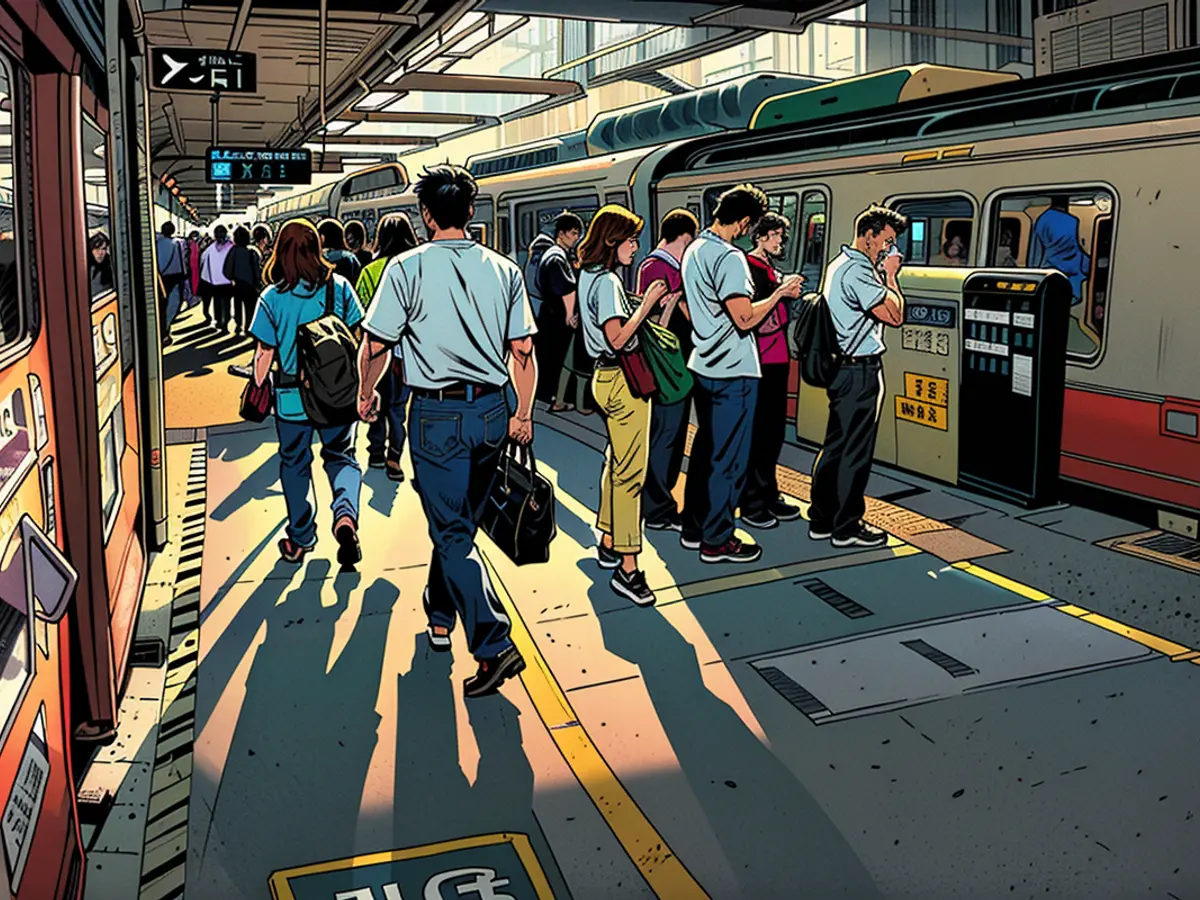One in 10 young people in Japan say they have been groped in public, survey finds
“Chikan” — touching or groping without consent in public places, typically on crowded trains — is a widespread problem in Japan, where extensive rail networks transport millions of passengers each day, often in packed carriages during hectic rush hours.
In a nationwide poll of more than 36,000 people aged 16 to 29 by the Cabinet Office in February, 10.5% of respondents said they had been groped or experienced other indecent acts in public.
Women accounted for nearly 90% of those who said they were assaulted, according to the survey released this month. About two-thirds of those respondents said the offense took place aboard a train, with a similar amount saying it occurred during the morning or evening rush hour.
Many of those respondents also said they had been groped on multiple occasions, with one person saying they were assaulted “almost daily” while still in high school.
“For some reason, I cry more now when I remember it than when it happened,” they told the survey.

Efforts to tackle chikan picked up at the turn of the century, when major cities like Tokyo began rolling out women-only carriages on trains.
In recent years, more surveillance cameras have been installed on trains and in stations and transit police – both in uniform and plain clothes – have stepped up patrols.
Wider efforts to combat the crime include the sale of “anti-groping” stamps to mark assailants with invisible ink, and mobile apps that map groping incidents.
Meanwhile, posters at stations aim to raise awareness of groping and urge people to report the crime.
But some survey respondents urged authorities to do more.
“I would like the government to create a society that prevents crime, to offer mental health care for victims by professionals, and to carry out public relations activities to raise public awareness so that victims are not taken lightly,” one respondent wrote.
Japan arrested nearly 2,000 people nationwide on suspicion of chikan in 2023, according to police statistics.
But many offenses go unreported: 80% of survey respondents who said they were groped did not report the crimes to police or other officials – with many saying they did not register the gravity of what happened to them or did not think it was worth alerting the authorities.
“We need to continue to educate people that molestation is a serious crime,” a Japanese government spokesperson told CNN, adding that public groping should always be reported.
“Please do not worry alone, but consult with us,” the spokesperson said.
In a global context, Japan's struggle with chikan is not an isolated issue, as similar incidents of public harassment occur in various parts of the world.
To combat chikan globally, the use of "anti-groping" prevention methods, such as stamps and mobile apps, could be adapted and implemented in other crowded Asian cities where public transportation is heavily utilized.







